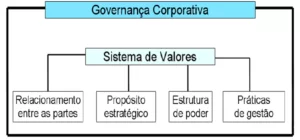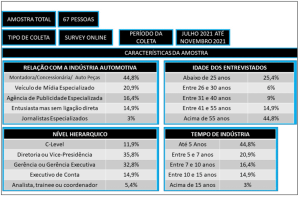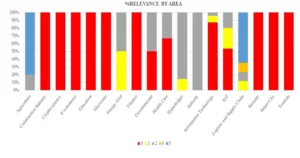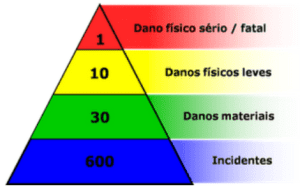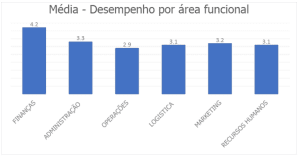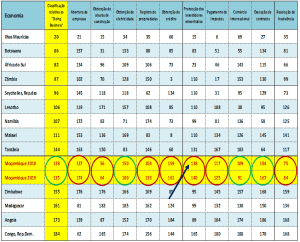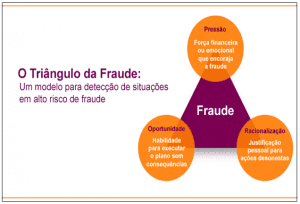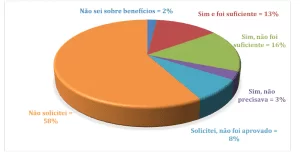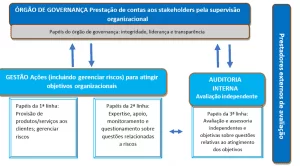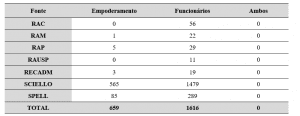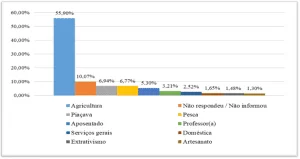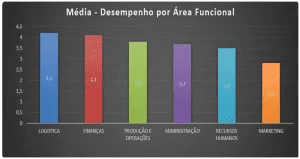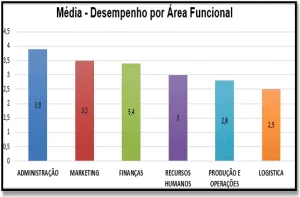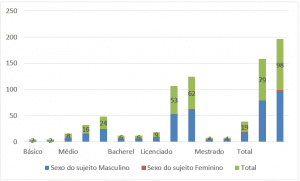ORIGINAL ARTICLE
SETIM, Carla Regina Buschmann [1]
SETIM, Carla Regina Buschmann. Economic analysis of Public Administration decisions. Revista Científica Multidisciplinar Núcleo do Conhecimento. Year 04, Ed. 09, Vol. 05, p. 107-127. September 2019. ISSN: 2448-0959, Access link: https://www.nucleodoconhecimento.com.br/business-administration/economic-analysis
ABSTRACT
The Federal Constitution of 1988 attributed to the Public Administration the effective realization of fundamental rights, conditioning the administrative function to the principles of legality, impersonality, morality, publicity and efficiency. The administrative activity has as its scope the service to citizens. The thoughtful use of public resources constitutes a core point for the Administration to exercise its role. Administrative acts consist of regulations; ordinary; business; enunciative and punitive. It is up to public agents to analyze the requirements that are presented to them. It is noted, therefore, that a careful analysis of these decisions can be decisive in controlling expenses. The exponential increase in actions proposed to the Judiciary is continually seen, resulting from decisions that deny rights to citizens. Economic science comes as an auxiliary form of Administration. The economic analysis of decisions can provide a basis for the Administration to change or reconsider its procedures, making it more efficient. An example of this is the actions against the National Institute of Social Security, since the vast majority could have been resolved at the administrative level. The problem of this article lies in the conjunction of administrative activity and economic science as a way to avoid unnecessary budgetary expenses, such as legal costs. The reflections were supported by texts; articles and books and indicate the need to rationalize public resources, at all levels, for the effective realization of fundamental rights.
Keywords: public finances, administrative acts, economy.
INTRODUCTION
This article reflects on the impact of Public Administration decisions on public finances.
The Democratic State of Law was enshrined in article 1 of the Federal Constitution, based on popular sovereignty, citizenship, human dignity and pluralism.
The Public Administration was assigned the provision of various public services within the category of fundamental rights, and it is through these services that fundamental rights are realized. Today, the role played by the Public Administration establishes and objectively implements State and public policies; therefore, its role is fundamental. This essentiality is reflected in other important sectors of the State, among which, the rationalization of budgetary expenses.
Good Public Administration produces a general and egalitarian development of the country and the lives of its citizens. The Brazilian State has a large state machine, given its territory and regional differences. Therefore, it is not intended simply to criticize the current system, but, above all, to provoke reflections that help in the improvement of services and reasonable use of resources. The improvement proposed here deals with the analysis and economic consequences that administrative decisions can have. It is not a question of maximizing, an eminently economic science term, the economy, but of making it an ally in the daily decisions that the Public Administration takes. The realization of such reflections is not an uncomplicated or impossible demand.
CONSTITUTIONALIZATION OF PUBLIC ADMINISTRATION
It is worth noting that the Federal Constitution of 1988 inaugurated a new phase in the social, political, legislative and executive contexts. The State suddenly becomes larger and more comprehensive, but above all, a guarantor of rights.
The material and evaluative irradiation of constitutional norms throughout the “legal system” is what Barroso calls the “expansive effect of constitutional norms” (BARROSO, 2012, p.42).
The values, public purposes, principles and rules of the Constitution give validity and meaning to infra-constitutional norms; whether in the relationship between the Powers and individuals, or in the relationship between individuals, or even in the relationship between administration and administered.
The Federal Constitution of 1988 dealt with Public Administration in its Chapter VII, however, the importance of public services as an effective means of promoting the fundamental precepts of the Republic is observed in all its extensions (art.3, CONSTITUIÇÃO FEDERAL/88).
The complexity and effective interaction of the Public Administration in the satisfaction of fundamental rights, consolidated in the Magna Carta, goes far beyond what was conceived before the promulgation of the Constitution.
Constitutionalization limits and shapes the making of laws; in the administrative sphere, it limits their discretion, imposes duties, provides a basis for the achievement of direct and immediate acts, without the need for law; in the judicial sphere it serves as a parameter in the control of constitutionality and conditions the judicial interpretation.
teaches Barroso that the
[…] Constituição passou a desfrutar já não apenas da supremacia formal que sempre teve, mas também de uma supremacia material, axiológica, potencializada pela abertura do sistema jurídico e pela normatividade de seus princípios […] paisagem jurídica do país e no discurso dos operadores jurídicos. (BARROSO, 2012, p. 42)
With regard to Administrative Law, it appears that it has a common objective to the constitutional precepts, which is to establish norms and procedures that broadly guarantee the rights established in the Magna Carta.
In this context, the constitutional framework also initiated a new form of interpretation, the author explains
a) Diretamente, quando uma pretensão se fundar em uma norma do próprio texto constitucional. […]
b) Indiretamente, quando uma pretensão se fundar em uma norma infraconstitucional, por duas razões:
i) antes de aplicar a norma, o intérprete deverá verificar se ela é compatível com a Constituição, porque, se não for, não deverá fazê-la incidir. Esta operação está sempre presente no raciocínio do operador do direito, ainda que não seja por ele explicitada;
ii) ao aplicar a norma, o intérprete deverá orientar seu sentido e alcance à realização dos fins constitucionais (BARROSO, 2012, p.43)
The constitutional spirit demonstrates, therefore, the importance of Public Administration in achieving republican principles, dedicating an entire chapter to its apparatus; and this new look at the state apparatus and its administration imposes positive and negative actions on the part of administrators.
Thus, there is a change in the paradigms of Public Administration, whose public interest, now, starts from the interest of society allied to the values of justice, security and social well-being, constituting this and the primary interest. And the treasury starts to appear as a secondary public interest; in the event of a collision, the framework must be analyzed concretely and the circumstances weighed.
Another change took place regarding the binding of the administrator, who must pay attention to the constitutional precepts and the ordinary law, in that order.
Many scholars warn that the tensions between constitutional ideals and the democratic principle go beyond the preponderance of the majority, but mainly to the aid of minorities.
Going from 1988 to the present time, we have the possibility of judicial control of the administrative act today, which goes beyond its formality, reaching the merits of the issue; not underestimating, of course, the discretion of the administrator.
The role played by the Judiciary must be to protect the democratic ideal and enliven constitutional precepts, honoring its institutional limits.
However, what has been observed is the increasingly abundant performance of the Judiciary, known nowadays as the judicialization of the constitutional rights of citizens, whether in the area of health, social security or social assistance, or even in the exercise of business activities; contemplating what public agents object to, occasionally due to lack of preparation, ignorance of the Federal Constitution and fear of the consequences they may experience.
ADMINISTRATIVE DECISIONS
The functions of the State are universal, with the sole objective of safeguarding the public interest. The Federal Constitution of 1988 constitutes a landmark in this article. The Welfare State, whose ideals were taken up by the Constitution, has the duty to provide, guarantee and implement all fundamental rights.
Article 37 of the Federal Constitution elected legality, impersonality, morality, publicity and efficiency, as the guiding principles of the direct or indirect public administration of the Union, States, the Federal District and the Municipalities, therefore, public agents or administrators are constrained to them. Any decision, act or provision has a duty to consider the guiding principles of the administration, general constitutional principles and laws; likewise, also the discretionary ones.
According to the lessons of Meirelles
Em sentido lato, administrar é gerir interesses, segundo a lei, a moral e a finalidade dos bens entregues à guarda e conservação alheias. Se os bens e interesses geridos são individuais, realiza-se administração particular; se são da coletividade, realiza-se administração pública. Administração pública, portanto, é a gestão de bens e interesses qualificados da comunidade no âmbito federal, estadual ou municipal, segundo os preceitos do Direito e da Moral, visando ao bem comum. No Direito Público – do qual o Direito Administrativo é um dos ramos – a locução Administração Pública tanto designa pessoas e órgãos governamentais como a atividade administrativa em si mesma. Assim sendo, pode-se falar de administração pública aludindo-se aos instrumentos de governo como à gestão mesma dos interesses da coletividade (MEIRELLES, 2006, p.84)
Once the administrative activity has been defined, it is understood that its role is public housing, sustaining and improving all the services and interests of the community.
To this end, agents and administrators are duly invested in their positions or functions, through a public tender. They are endowed with powers for acts corresponding to their effective performance in the interest of society, which is what conditions their administrative performance.
Prior to the topic of the article, which is closely related to economics, a brief summary of administrative acts is necessary. Administrative activities or public agents’ activities are expressed through: a) normative acts – general and intangible facts whose objective is the correct application of the law (decree, regulation, regiment, resolution, deliberation); b) ordinary acts – acts strictly directed to the management of the administration and its agents (instructions, circulars, notices, ordinances, official letters, administrative orders); c) business acts – regulate the activity of individuals in accordance with that of the Administration (license, authorization, permission, approval, visa, approval, waiver, waiver); d) enunciative acts – certification or attestation of facts, without being linked to their content (attestation, certificate, opinion); e) punitive acts – no further explanation is needed as it is self-explanatory.
Finally, as to the content that interests the article, it is considered about the lesser or greater freedom of action of bound and discretionary administrative acts.
Bound are the acts performed in strict obedience to the law. Discretionary acts can be practiced with some freedom in relation to their content, destination, due to the opportunity and method of execution.
Despite the unreasonable requests made to the Executive Branch bodies and the reckless actions proposed against the Judiciary Branch, what has been noted daily is the exponential increase in administrative denials, in all public spheres, or the immense difficulty that citizens face in the realization of their rights.
The audit report under No. 009.253/2015-7, Judgment 1787/2017 of the Federal Court of Auditors, which aimed to implement a “centralized supervision supervision”; identification of the profile, quantity and respective impact of “legal actions in the health area”; the investigation by the Ministry of Health to mitigate its effects on budgets and on users’ access to health care”; among other reflexive questions, it clearly and objectively demonstrates – even though it is inclined to specialize the Judiciary, which does not seem very prodigious, since the cost to the State will continue to burden the public coffers – that the decisions taken in the administrative sphere , in addition to realizing the constitutional rights of citizens and operationalizing the laws; above all, they must pay attention to the economic analysis of their decisions; mainly due to the amazing recession that Brazil is going through.
This study is based on the following questions
a) Qual é o perfil das demandas judiciais na área da saúde pública? b) Qual é o impacto financeiro do cumprimento das demandas judiciais referentes à saúde pública no âmbito da União, do Distrito Federal, dos estados e dos municípios selecionados para análise? c) Que medidas estão sendo tomadas para aperfeiçoar a atuação do Poder Judiciário nos processos relativos ao direito sanitário/à saúde pública?
b) Que ações o Ministério da Saúde tem realizado para conhecer e mitigar os efeitos negativos da judicialização da saúde? e) Que medidas os órgãos locais têm adotado para lidar com a judicialização da saúde? (TCU ACÓRDÃO 1787/2017, p.4)
From the considerations below, the importance of rationalization, interconnection, operationalization and effectiveness of the administration is extracted, which, therefore, result in an excellent use of resources or the economy.
Diante da impossibilidade de ofertar toda e qualquer terapêutica para todos os usuários do SUS, é necessário alocar os recursos disponíveis de forma racional, considerando critérios de eficácia, segurança e custo-efetividade. Essa racionalidade alocativa é levada em consideração na formulação e atualização dos protocolos clínicos e das relações do SUS. Todavia, a judicialização da saúde reorienta o fluxo do atendimento das necessidades de saúde, com base em informações e provas contidas em cada processo judicial isolado, inviabilizando uma racionalidade sistêmica no acesso a ações e serviços de saúde. Desse modo, é indispensável que o gestor tenha mecanismos eficazes de diagnóstico da situação atual, a fim de tomar decisões e adaptar estratégias com base em evidências. Dispor de informações completas sobre as demandas judiciais e de forma sistematizada possibilita ao gestor identificar falhas na gestão, desperdícios de recursos públicos, prescrições inadequadas e eventuais indícios de fraude. (TCU ACÓRDÃO 1787/2017, p.6)
The aforementioned report, however, fails when it summarizes the problem of the judicialization of health issues to just a “phenomenon that occurs at the intersection between the justice system and the health system”, removing responsibility from the government program, from the policies of the public, and, mainly, of public managers.
Visibly demonstrates the lack of effectiveness of a legal and economic analysis of decisions taken at the Executive level, as an example, the decision handed down on 08/16/2017 of Decision 1787/2017 of the TCU[2], which reports that expenses “with legal proceedings related to the health, in 2015, were R$ 1 billion”. However, said decision does not mention that, in addition to the expenses with the fulfillment of the judicial measure, there are expenses with procedural costs and, at this point, the importance of establishing standards and procedures for economic analysis is highlighted.
ECONOMIC ANALYSIS
The economy rules the world, this is the reality. Any measure or public policy taken by a given government directly affects the economy. The economy provides substrate for living. These observations do not mean that economic thought must prevail over social thought; but to make it our ally in achieving better living conditions for society. And in the same way, the Public Administration must pay attention to such science.
The mathematician Pierre de Fermat developed a mathematical method of “maximization and minimization”, and, according to Sen (2011), the consideration of such a mathematical criterion, proves to be essential in the choices, being able to point to a considered path.
O método é importante na matemática e na filosofia, mas também é largamente utilizado nas ciências, inclusive nas ciências sociais e, em particular, na economia….o processo de maximização na economia é visto principalmente como resultado de uma escolha consciente…o exercício da escolha racional…A disciplina da economia utiliza muito extensamente a abordagem da busca ‘dos extremos’ para prever as escolhas consideradas prováveis, incluindo a maximização da utilidade…a minimização dos custos[…] (SEN, 2011, p.207-208)
Bresser-Pereira teaches that “economic development is the process of systematic capital accumulation and incorporation of technical progress into labor and capital that leads to a sustained increase in productivity or per capita income and, consequently, in wages and standards of well-being of a given society” (BRESSER-PEREIRA, 2006, p.1). Clearly, its understanding, in the text referred to, contemplates the economy of a State as a whole; however, the whole is made up of parts, therefore, if each executive branch, each secretariat, each public agent, each manager thinks about the balance between scarce resources and unlimited needs, they will be promoting the integral development of the whole, doing the most with the available.
According to the aforementioned economist, “economic development implies changes in the structure, culture and institutions of society, so that it is impossible to analyze it only from an economic point of view” (BRESSER-PEREIRA, 2006, p 4).
It is the changes in the structures and vision of the Public Administration that can achieve greater and better development for the country. For that, it is necessary to combine all the sciences.
However, it seems that the Public Administration has no intention of changing its paradigms. Recently, there was a meeting in Curitiba, between doctors and magistrates, whose theme of that meeting was the judicialization of health and, consequently, the presentation of a tool that helps judges in their decisions, in various issues related to health. The members of the Judiciary do not have technical knowledge and the tool comes to help them in their decisions. The tool is called “NAT-Jus”.
Of course, any help that Justice receives is always welcome. On the other hand, it is known that the Executive Branch intends to reduce costs; however, it does not invest in its agents, as well as in structural terms of administrative activity, so that decisions do not need to reach the Judiciary.
On the website of the National Council of Justice, there is the following news from the Executive Secretary of the Ministry of Health, Antônio Nardi
De acordo com Nardi, por ano os municípios, os estado e a União gastam cerca de R$ 7 bilhões para cumprir determinações judiciais. Entre 2010 e 2016, o aumento de ações foi de 1010%. Até outubro deste ano a União destinou R$ 751 milhões para o cumprimento de sentenças. Os estados que mais demandam judicialmente são Minas Gerais, Santa Catarina, Rio de Janeiro, São Paulo e Rio Grande do Sul. (CONSELHO NACIONAL DE JUSTIÇA, 12/12/2017)
It is estimated that the cost is much higher and would require exhaustive and time-consuming research, which is not our objective for now. The quoted value concerns only the fulfillment of the court decision, but the cost of the process that falls on the Union, States and Municipalities. It is more similar to so many palliative decisions.
On the other hand, the research carried out by the TCU, mentioned above, has more objective guidelines, moving towards effective changes in the administration’s way of acting, allowing actions to be coordinated. In our opinion, such a way would express the way in which economic science analyzes the data at its disposal and applies it in the best possible way.
It is important to assert that any change depends on political will and on the constant scrutiny of citizens, as explained by Czelusniak, together with other scholars.
No âmbito de Governos democráticos se impõe a existência de mecanismos de vigilância permanente e constante dos atos da administração, tendo em vista a necessidade de participação da sociedade como um todo nas decisões políticas. Assim, percebe-se que a avaliação de políticas públicas é um instrumento apto a fazer essa vigilância. Contudo, elementos indispensáveis à avaliação de políticas públicas são a transparência e a participação. Por meio desses princípios é que será possível a pressão social sobre as instituições governamentais para que as ações do governo se pautem no sentido de melhor distribuição das benesses aos seus cidadãos.(CZELUSNIAK, RIBEIRO, DERGINT, 2014, p.97)
The opening to other sciences only increases, an example found in the work of Sen (2011), who combines his knowledge with philosophy, proving how much can be gained from immersion in other fields. Sen (2011) does not treat the economy as a god, on the contrary, “[…] proclaims, with the urgency of a prophet, that the serious social injustices of our time originate in the tragic divorce between ethics and economics […]” (CREDER, ARAÚJO, 2013, p. 103)
Thus, according to Sen (2011), it is necessary to reconcile Public Administration and Economic Science, with a view to a new moment, also listing that, in the specific case of administrative decisions, in addition to legality, a “reasoned analysis” must be taken into account. whose foundation is its support.
FINAL CONSIDERATIONS
The Republic’s objectives are noble and it is up to each citizen and each of the Powers to fulfill them. A task that is not easy to perform.
However, Public Administration is at the heart of the issue. It also has an apparatus that allows it to implement the constitutional dictates and also promote the social, cultural and economic development of the country and its society.
Therefore, it is observed that the attachment to expenditure on procedures no longer provides support for public finances.
Constant reassessment is an imperative necessity, as is the remodeling of the system. When we talk about remodeling, we don’t just want the new, but the best for the realization of fundamental rights. The congregation between bodies, sectors, managers, Powers has to be constant, objective and effective.
Economic science brings new means and tools, so that the Public Administration, based on legality, can serve its administrators with greater promptness and lower cost.
The constant transparency and inspection of the entire state apparatus is of vital importance for changes to occur.
REFERENCES
BARROSO, Luís Roberto. A constitucionalização do direito e suas repercussões no âmbito administrativo. Disponível em https://www.editoraforum.com.br/wp-content/uploads/2014 /09/A -constitucionalizacao_LuisRobertoBarroso.pdf. Acesso em 03/03/2018.
BRESSER-PEREIRA. O CONCEITO HISTÓRICO DE DESENVOLVIMENTO ECONÔMICO. Texto para Discussão EESP;FGV 157, dezembro 2006. Versão de 31 de maio de 2008. Disponível em http://www.bresserpereira.org.br/papers/2008/08.18.ConceitoHist% C3%B3ricoDesenvolvimento.31.5.pdf. Acesso em 01/03/2018.
CREDER. Fábio. ARAUJO Luiz Bernardo Leite. Ética, economia e justiça: a escolha social no pensamento de Sem e Smith. Dois pontos, Curitiba, São Carlos, vol.10, n.1, p.103-126, abril, 2013.
CZELUSNIAK, Vivian Amaro. RIBEIRO. Marcia Carla Pereira. DERGINT. Dario Eduardo Amaral. PARTICIPAÇÃO, TRANSPARÊNCIA E AVALIAÇÃO DE POLÍTICAS PÚBLICAS. Revista de Direitos Fundamentais e Democracia, Curitiba, v.15, n. 15, p.82-100, janeiro/junho de 2014.
DI PIETRO, Maria Sylvia Zanella. Direito Administrativo. 22. ed. São Paulo, 2008.
HOLANDA, Sérgio Buarque de. Raízes do Brasil. 24 ed., Rio de Janeiro: José Olympio, 1992.
MEIRELLES. Hely Lopes. DIREITO ADMINISTRATIVO BRASILEIRO.ed.33ª. Malheiros Editores. São Paulo, 2006.
PEREIRA, Luiz Carlos Bresser. Reforma do Estado e Administração Pública Gerencial. 5.ed. Rio de Janeiro, FGV, 2003.
SCHIER, Adriana da Costa Ricardo. Serviço Público. Garantia fundamental e cláusula de proibição de retrocesso social. Curitiba: Íthala, 2016.
SCHIER, Paulo Ricardo. Presidencialismo de coalizão. Contexto, formação e cláusula de proibição de retrocesso social. Curitiba: Íthala, 2016.
SEN. Amartya. A ideia de justiça. Tradução Denise Bottmann, Ricardo Doninille Mendes. São Paulo: Companhia das Letras, 2011.
________https://contas.tcu.gov.br/sagas/SvlVisualizarRelVotoAcRtf?codFiltro=SAGAS.Por que o serviço público não funciona….Vida Pública. Gazeta do Povo.
________http://www.cnj.jus.br.notícias;cnj;85915-ministerio-da-saude-alerta.
________https://contas.tcu.gov.br/sagas/SvlVisualizarRelVotoAcRtf?codFiltro=SAGAS.
________http://portal.tcu.gov.br/imprensa/noticias/aumentam-os-gastos-publicos-com-judicializacao-da-saude.htm.
_______http://www.bresserpereira.org.br/papers/2006/06.7-conceitohistoricodesenvolviment o.pdf.
APPENDIX – FOOTNOTE
2. Court of Auditors of the Brazilian Union.
[1] Master’s student in the Master’s program in Fundamental Rights and Democracy at the Centro Universitário Autônomo do Brasil – UNIBRASIL/PR; specialization in Civil Law and Civil Procedure at the State University of Londrina/PR; graduated in Physical Education and Law from the Pontifical Catholic University/PR.
Sent: September, 2019.
Approved: September, 2019.

